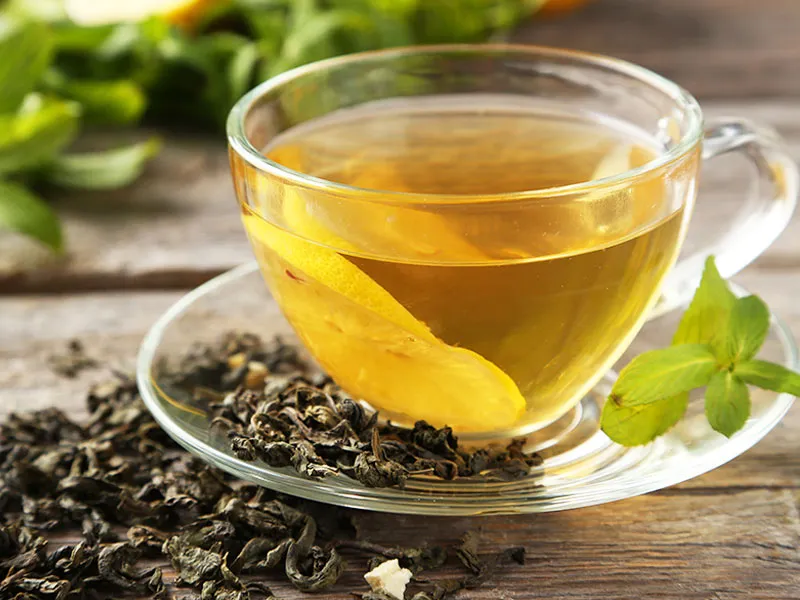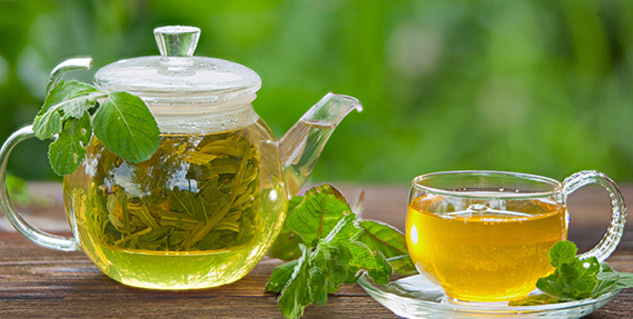
Green tea has long been known as one of the healthiest drinks worldwide. From weight management to better brain function and glowing skin, it’s often promoted as a miracle drink. But is drinking green tea every day actually healthy, or can too much of it backfire?
Table of Content:-
The editorial team of Onlymyhealth reached out to our expert, Dr Vikram Vora, Medical Director and Chief Health Officer (Indian Subcontinent), International SOS, and he shared with us his expert insights, what research says and where to draw the line. Here is what he shared with us.
Why Green Tea is So Popular
Green tea is processed from the leaves of Camellia sinensis, and is minimally oxidised to retain its high content of antioxidants. It is packed with polyphenols, especially catechins such as EGCG (epigallocatechin gallate), which is recognized for its anti-inflammatory and metabolism-enhancing properties.
Researchers note that these substances can assist in neutralising free radicals in the body, thus decreasing oxidative stress, a primary cause of ageing and chronic diseases. Daily green tea consumers tend to experience enhanced concentration, smoother digestion, and heightened energy levels.
Also Read: Washed Your Hair Yesterday but It Smells Today? Here’s Why

Health Benefits of Green Tea Supported by Research
According to Dr Vora, consuming green tea has the following benefits:
1. Aids Heart Health
Research has indicated that daily consumption of green tea can decrease LDL (bad) cholesterol and triglycerides and enhance HDL (good) cholesterol, thus decreasing the risk of heart disease in the long run.
2. May Help with Weight Control
The catechins and caffeine in green tea can potentially complement each other to mildly boost metabolic rate, such that the body burns fat better. “It is not a magic weight loss elixir, but combining green tea with diet and exercise increases the effectiveness,” Dr Vora noted.
3. Enhances Brain Function
Green tea has L-theanine, an amino acid that induces relaxation without sleepiness. When paired with caffeine, it can enhance alertness, attention, and cognitive function, without the jittery sensation commonly associated with coffee.
4. May Lower Risk of Certain Cancers
Certain studies indicate that green tea antioxidants could shield cells from DNA damage that can cause cancer. Dr Vora advised that green tea must be one aspect of an overall healthy lifestyle, not a replacement for medical treatment or prevention.

When Green Tea Might Not Be So Good
“Though moderate consumption of green tea (two to three cups a day) is mostly safe, consuming large quantities has some disadvantages,” Dr Vora added. The caffeine content in green tea may lead to restlessness, insomnia, or palpitations in susceptible individuals.
“Excessive consumption of green tea will also disrupt iron intake from vegetable foods, and this may ultimately cause anaemia. Pregnant and lactating women should avoid excessive consumption because of the caffeine content and the potential impact of excessive catechin intake on folate metabolism,” Dr Vora recommended.
In addition, certain concentrated green tea preparations in supplements have been associated with liver toxicity when consumed in extremely high amounts. Dr Vora suggested sticking to brewed tea and not high-dose powders or pills unless one is on specific advice from a healthcare professional.
The Proper Way to Consume Green Tea
Here is an expert-approved way to consume green tea:
- Timing is everything: Consume green tea in between meals so that nutrient absorption is not affected.
- Don't overbrew: Steep for two to three minutes to avoid bitterness and too much extraction of caffeine.
- Choose quality: Select organic or high-quality loose-leaf teas to reduce pesticide residues and get a better flavour.
- Stay hydrated: Green tea should not replace water, it should supplement your daily fluid allowance.
Bottomline
Daily consumption of green tea can be a healthy practice, if consumed in moderation. Two to three cups a day can provide a subtle energy kick, antioxidant protection, and general wellness benefits. However, overconsumption or using only green tea for health purposes can result in more damage than benefit.
Also watch this video
FAQ
1. How many cups of green tea do I need to consume on a daily basis?
2–3 cups daily is the maximum recommended dose by most experts for optimal benefit without the negative effects associated with excessive caffeine intake.2. Can green tea be used for weight loss?
Green tea can slightly boost metabolism and fat oxidation, but it works best when paired with a healthy diet and regular physical activity.3. Is it safe to drink green tea on an empty stomach?
For some, green tea on an empty stomach can cause nausea or acidity due to its tannin content. It’s best consumed after meals or light snacks.
How we keep this article up to date:
We work with experts and keep a close eye on the latest in health and wellness. Whenever there is a new research or helpful information, we update our articles with accurate and useful advice.
Current Version
Oct 25, 2025 02:25 IST
Published By : Tanya Srivastava